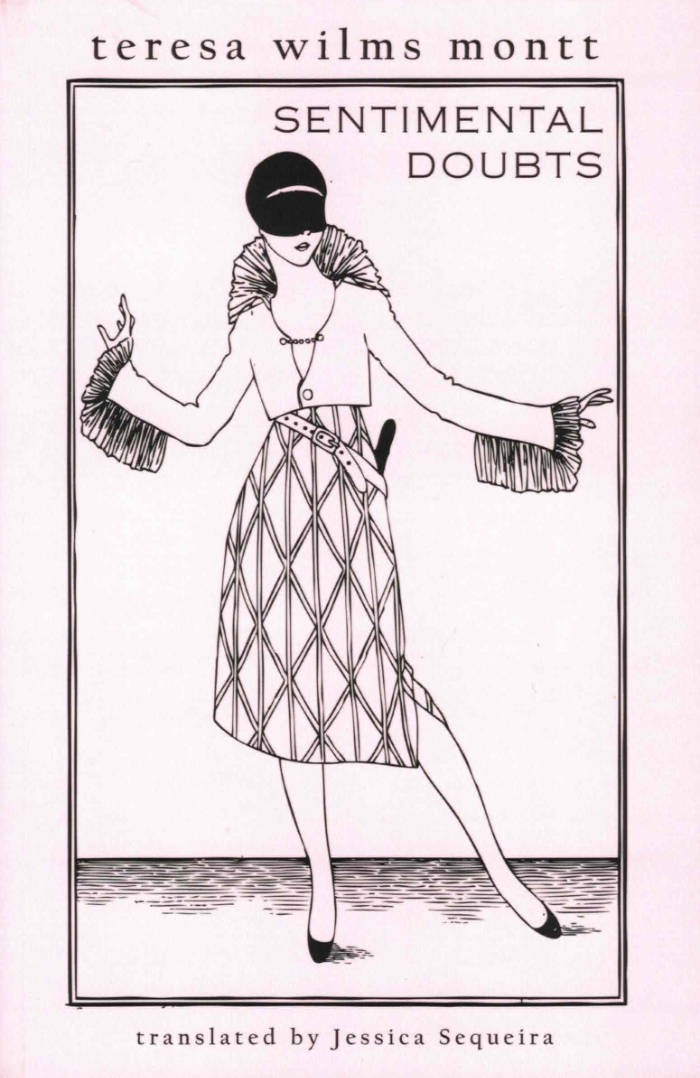
Sentimental Doubts
Teresa Wilms Montt , Jessica Sequeira trans.
Sentimental Doubts, here translated into English for the first time by Jessica Sequeira, was iconic Chilean writer Teresa Wilms Montt’ s first book. It was originally published in 1917, in Buenos Aires, after the author had left an entire life behind her in Santiago: her husband, her parents, the convent where she’d been confined for supposedly committing adultery, and her two daughters, whom she was forbidden from seeing.
In this work, she communicates her “inquietudes”: the racing heart, the muttering mind, the explosion of doubts.
Wilms Montt subverts the religious charge of doubt to turn pain into eroticism, sadness into seduction, doubt into assertion, and there is a great beauty to be found in this restlessness and impressionistic shifting, these temporary glimmers of light on water.
Teresa Wilms Montt was born on September 8, 1893 in Viña del Mar, Chile, into an elite, well-connected family. Her first book, Inquietudes sentimentales, consisted of fifty poems with surrealist features, while her second, Los tres cantos, explored eroticism and spirituality. Both books enjoyed great success in Argentine intellectual circles. In 1918, she moved to Madrid, where she published two works widely recognized by Spanish literary critics: In the Stillness of Marble and Anuarí. Upon returning to Buenos Aires in 1919, she published her fifth book, Cuentos para hombres que todavía son niños. She died in 1921, in Paris, from an overdose of Veronal.
About the Translator: Jessica Sequeira was born in San Jose, California in 1989, and currently lives in Santiago de Chile. Her works include the novel A Furious Oyster (Dostoyevsky Wannabe), and the collection of essays Other Paradises: Poetic Approaches to Thinking in a Technological Age (Zero).
Her translations include Bernardo Couto Castillo' s Asphodels (Snuggly Books, 2020), Enrique Gómez Carrillo' s Sentimental Stories (Snuggly Books, 2019), Rafaela Contreras' s The Turquoise Ring and Other Stories (Snuggly Books, 2019), Adolfo Couve’ s When I Think of My Missing Head (Snuggly Books, 2018), and Liliana Colanzi’ s Our Dead World (Dalkey Archive).



